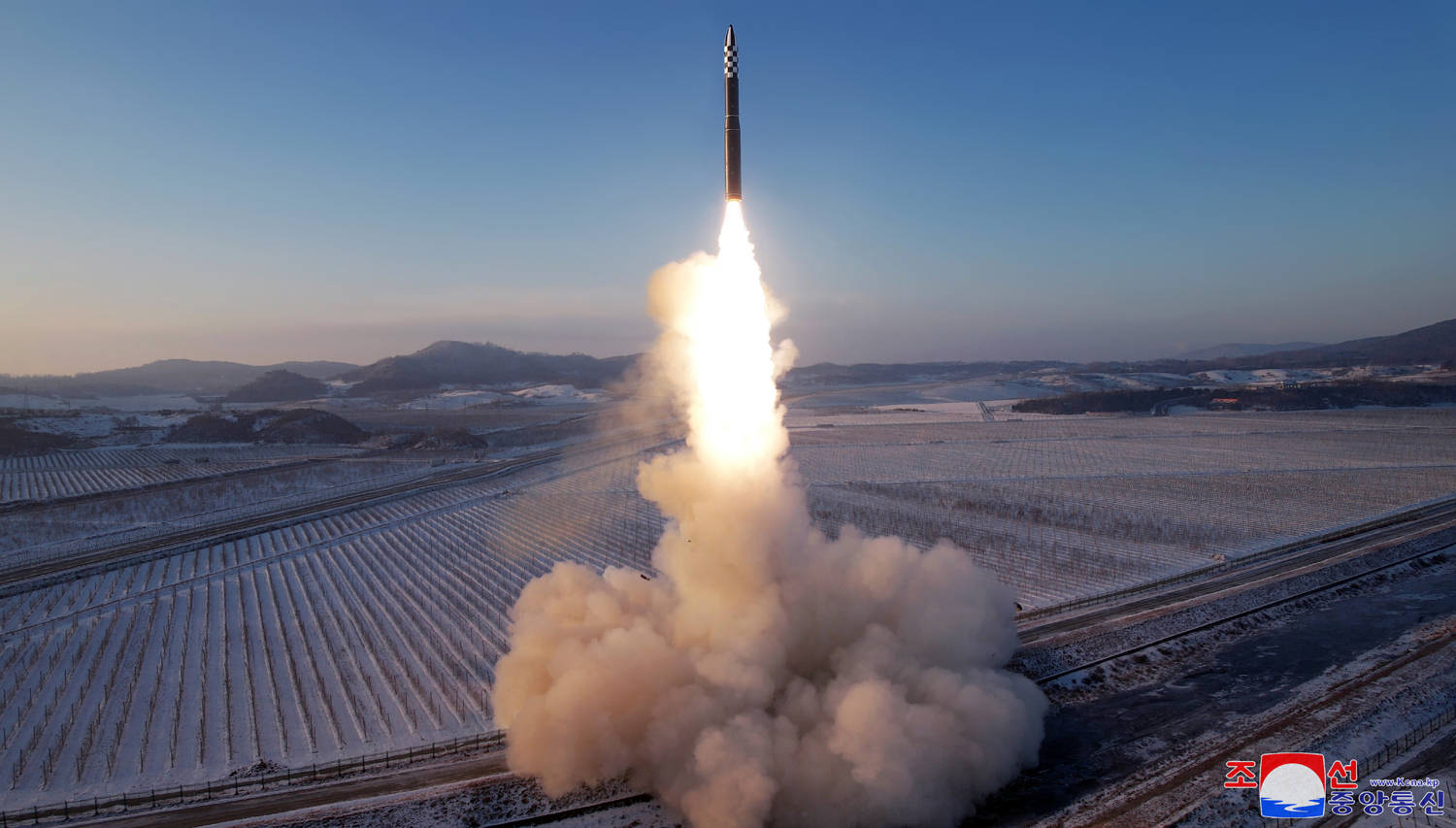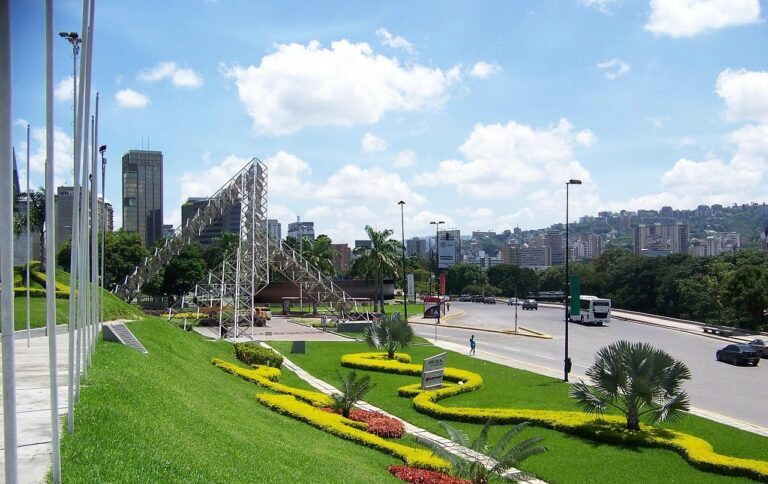
DPRK's ICBM launch on December 18, 2023
New York: Following the fifth launch of an intercontinental ballistic missile (ICBM) by the Democratic People’s Republic of Korea (DPRK or North Korea), on December 18, 2023, the United Nations Security Council (UNSC) members today (IST) called for de-escalation, political dialogue and diplomatic solutions for the Korean Peninsula, and a restoration of unity among the 15-nation Council.
Briefing the Council, Khaled Khiari, UN Assistant Secretary-General for the Middle East and Asia and the Pacific, reported that the intercontinental ballistic missile flew a distance of 1,000 kilometres and reached an altitude of 6,500 kilometres before falling into the sea. Calling this launch a “serious concern”, he recalled that in November 2023, North Korea carried out two successful tests of a new engine for a solid-fuel intermediate-range ballistic missile.
Noting that the DPRK did not issue any airspace or maritime safety notifications, he emphasized that unannounced launches represent a serious risk to international civil aviation and maritime traffic. In that regard, he urged Pyongyang to embrace diplomacy — rather than choosing isolation — as the way forward, adding, “The lack of communication channels hinders the possibility of progress.”
In the ensuing debate, many Council members condemned the recent ballistic missile launches, emphasizing possible risks of disaster resulting from an accident or miscalculation, while some pointed to increased deterrence to the Korean Peninsula and the dispatch of strategic weapons.
The DPRK representative, however, called the latest launch a “warning countermeasure”. He stressed that had it not been for the United States and South Korea’s provocation, which introduced a nuclear-powered submarine into the Korean Peninsula, Council members would not have to argue for and against the exercise of the right to self-defence of a Member State. “The biggest threat to international peace and security is coming from the Council itself,” he added.
The United States delegate observed that Pyongyang had refused an unconditional dialogue and that Washington and its allies were protecting themselves from DPRK’s nuclear weapons delivery systems.
While the US stressed that the only viable path forward was through diplomacy and denuclearization of the Korean Peninsula, South Korea stressed that the issue was no longer regional and had already been spreading insecurity to other parts of the world. Highlighting that Pyongyang’s nuclear threat had entered a new phase when the country adopted a law to lower the threshold for using nuclear weapons, the South Korean representative said it opened the door for a pre-emptive nuclear attack.
Significantly, one of the DPRK allies Russia noted that the pace of escalation on both sides of the Korean Peninsula was bringing the situation to a dangerous brink, while another close ally China warned “If this vicious cycle of aggressive assertion of power cannot be broken, the Peninsula can see further escalations”.
In a statement on its official website, North Korea hit out at the US and claimed it was due to the confrontational manoeuvres of the US and its “puppet military gangsters who are escalating the tension on the Korean peninsula”. It claimed that the territory of the DPRK and its boundary area were exposed to “serious danger” every moment and its security and interests were extremely violated.
“This grave situation is urgently requiring the DPRK to inevitably turn over to a changed action, a more offensive counteraction,” it stated and added that given this the Central Military Commission of the Workers’ Party of Korea gave the order to “take a powerful warning measure under the grave situation” with a drill of launching ICBM Hwasongpho-18. The launch of ICBM was staged as an “important military action to clearly show the DPRK’s nuclear strategic forces’ overwhelming counteraction will and matchless strength to the enemies”, it said.
DPRK also referred to the US dispatching its nuclear-powered submarine Missouri to the Korean peninsula on December 17, 2023, and termed it as an “extremely provocative action to pose a more grave threat to the security environment of the DPRK and the region, loudly advertising it, not content with the frequent deployment of nuclear war hardware of various kinds, including nuclear strategic bombers, super-large strategic nuclear submarine and nuclear carrier in the Korean peninsula to turn it into an assembly base for all the US nuclear strategic assets”.
– global bihari bureau





